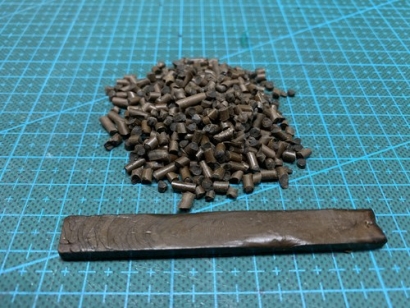
"Thermoplastic resin" is the precise technical term for plastic, which is defined as a synthetic material that can be molded into any shape for actual use by high-temperature molding using a molding machine. To perform molding, the plastic needs to be in the form of a "resin pellet" with a size of 1–3 mm.
The production and use of biodegradable plastic is slowly increasing, although greater than 98% of plastics worldwide are still petroleum-based non-biodegradable plastics. In addition, the production of this petroleum-based non-biodegradable plastics are still increasing regardless of these plastic pollution problems. Therefore, plastic pollution is worsening each year.
Biodegradable plastics are composed of either petroleum or biomass such as corn, sugarcane, potato, and grains. However, this might be a problem as such biomass is also used as food for human nutrition. As non-edible biomass, cellulose-based biodegradable plastics can be a good alternative, although the preparation of cellulose-based resins with good properties requires the use of petroleum-based additives.
With this view, Dr. Ryohei Mori at Green Science Alliance has created a 100% natural biomass-based biodegradable thermoplastic material from wood, stone, and a natural deep eutectic solvent.
Wood or plant is mainly composed of three components: cellulose, lignin, and hemicellulose. This novel and innovative material was prepared by the swelling, dispersion, and dissolution of the three components by use of a deep eutectic solvent, which imparted plasticity to the material. The same procedure can be utilized to prepare the similar material from any natural organic resource, such as waste wood, waste plant, seaweed, waste paper, and pulp.
Previously, some research studies have reported that resin-like materials can be prepared from wood using a deep eutectic solvent although thermoplastic resin pellets, which can be used for actual industrial applications, were not prepared. In contrast, Mori prepared actual thermoplastic resin pellets, using a twin extruder machine from wood, a deep eutectic solvent, and stone.
Besides wood, stone, and the natural deep eutectic solvent, the as-prepared material was also composed of environment-friendly natural materials; hence, this material was composed of 100% natural materials, i.e., no petroleum. In addition, not only wood and stone but also all of the other composed materials were cost-effective; hence, the cost makes it suitable for mass production.
However, the mechanical strength and water resistance of the composed material were slightly weak, although improvement was possible by preparing a composite with other biomass resins while simultaneously maintaining a 100% natural biomass composition.
Analysis and further improvement of the resin properties of this novel and innovative material, as well as sample work for actual industrial use, are currently underway in Green Science Alliance.
PHOTO: 100 % Natural Biomass Biodegradable Plastic Resin made from Wood and Stone and Natural Deep Eutectic Solvent

